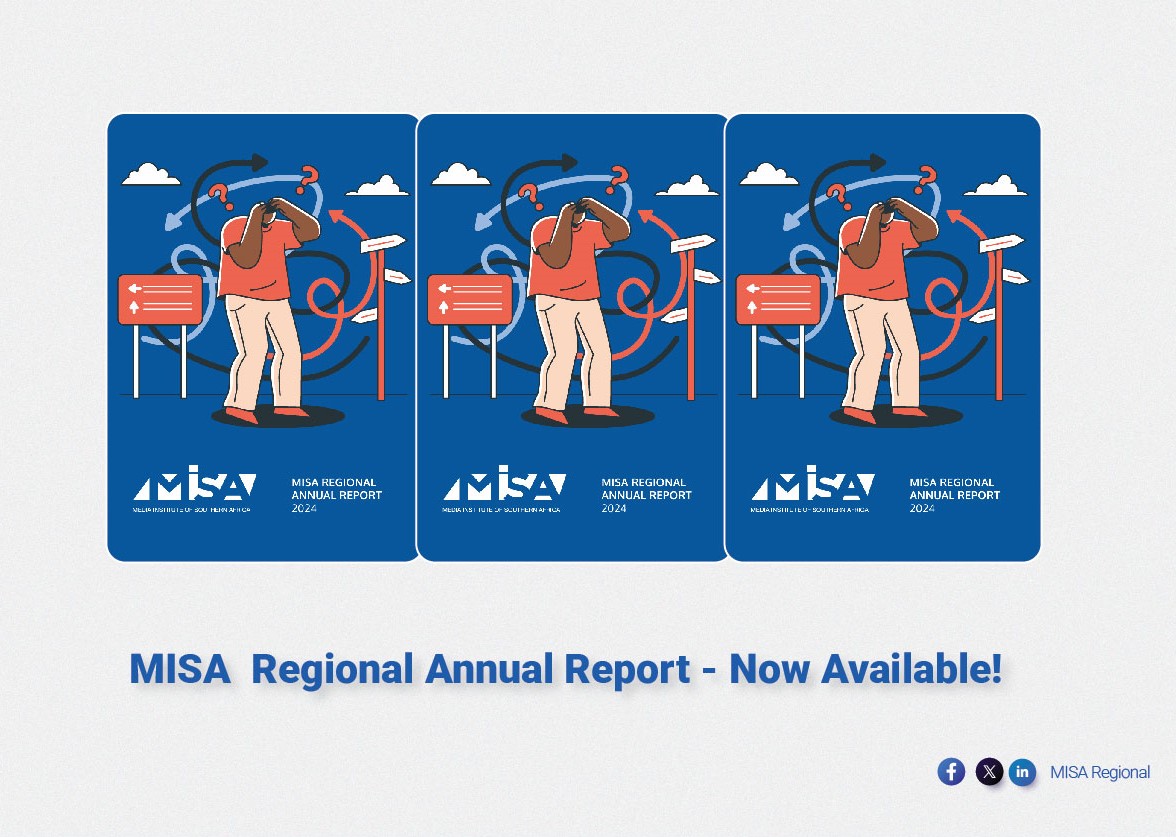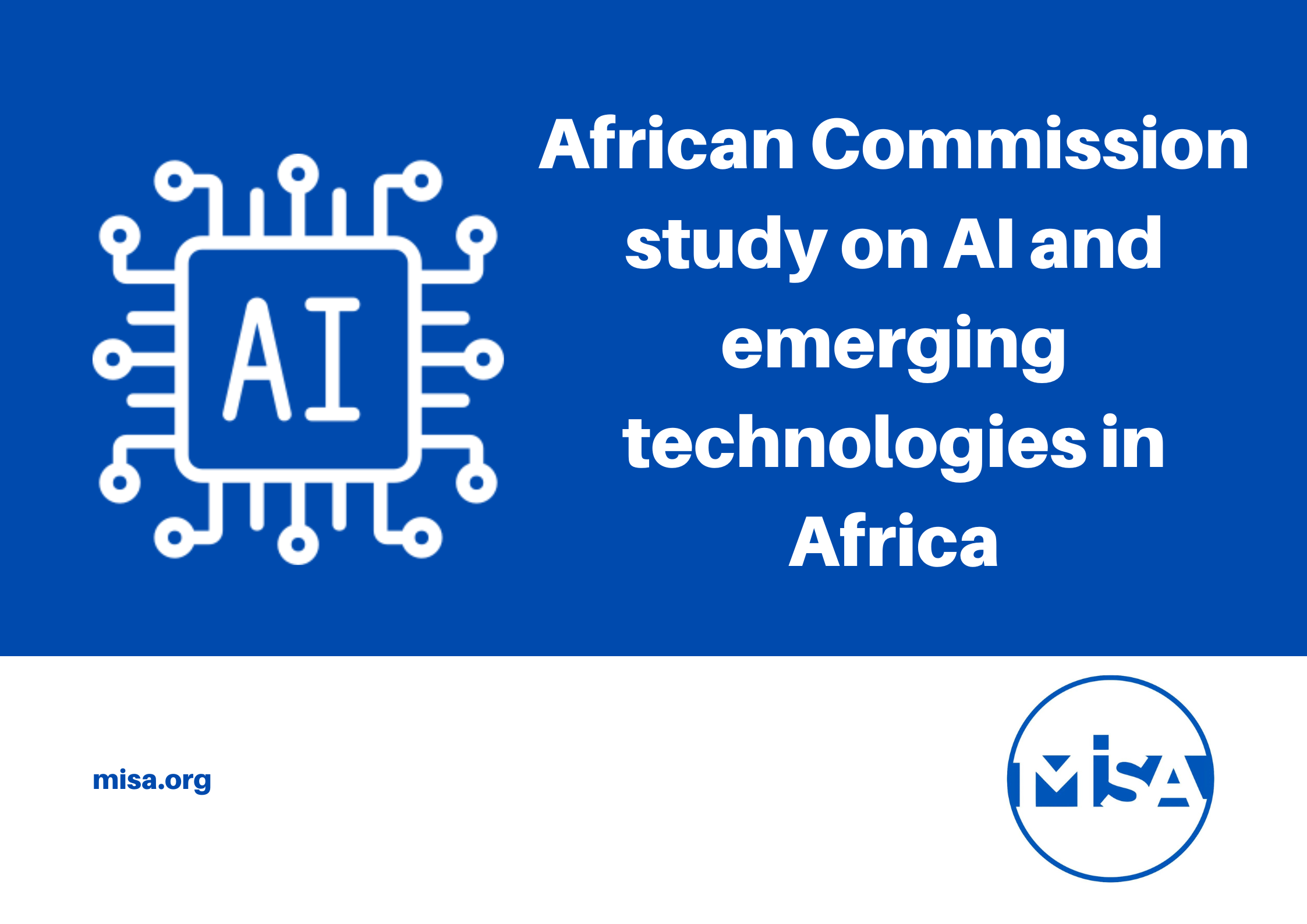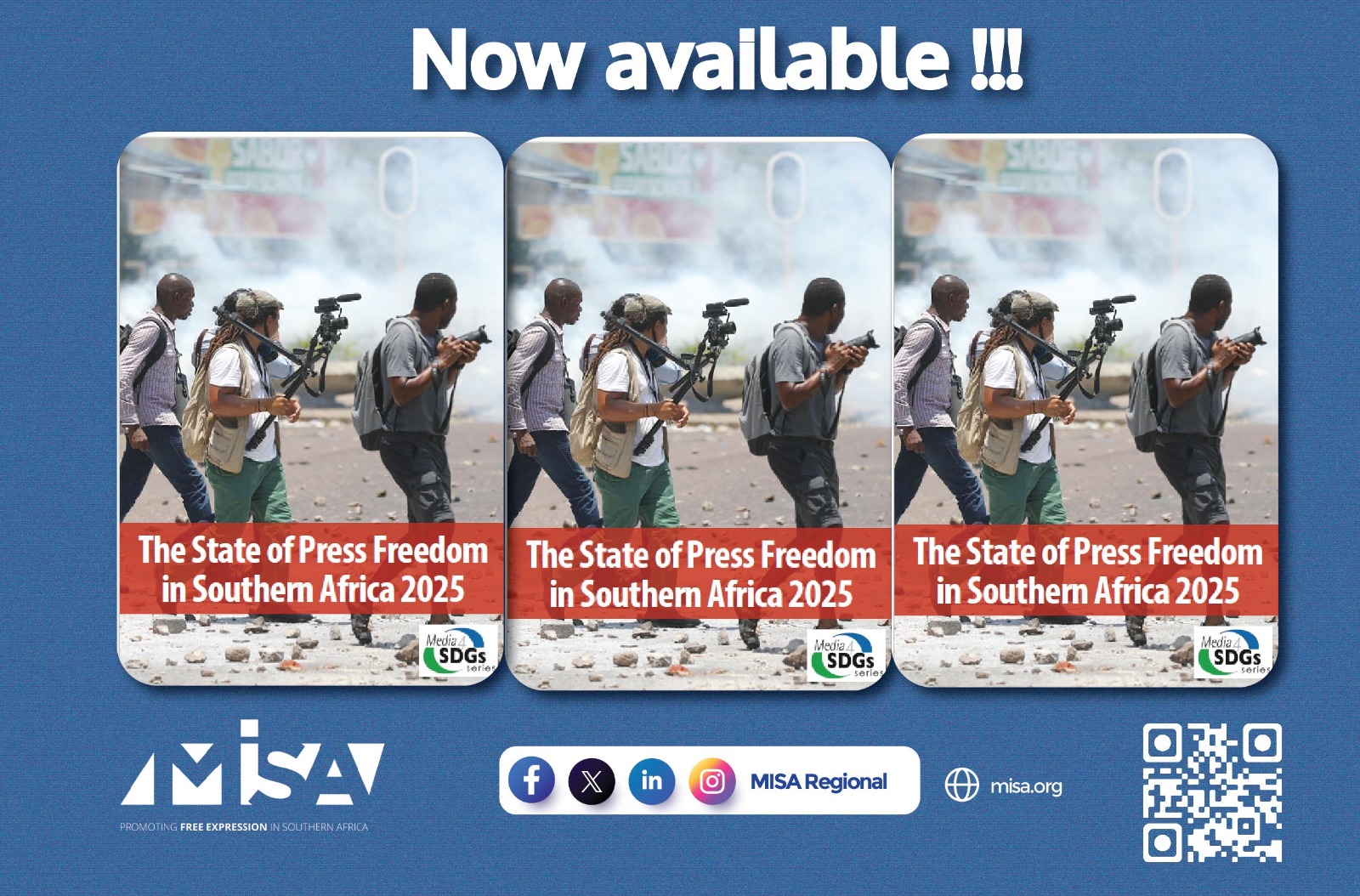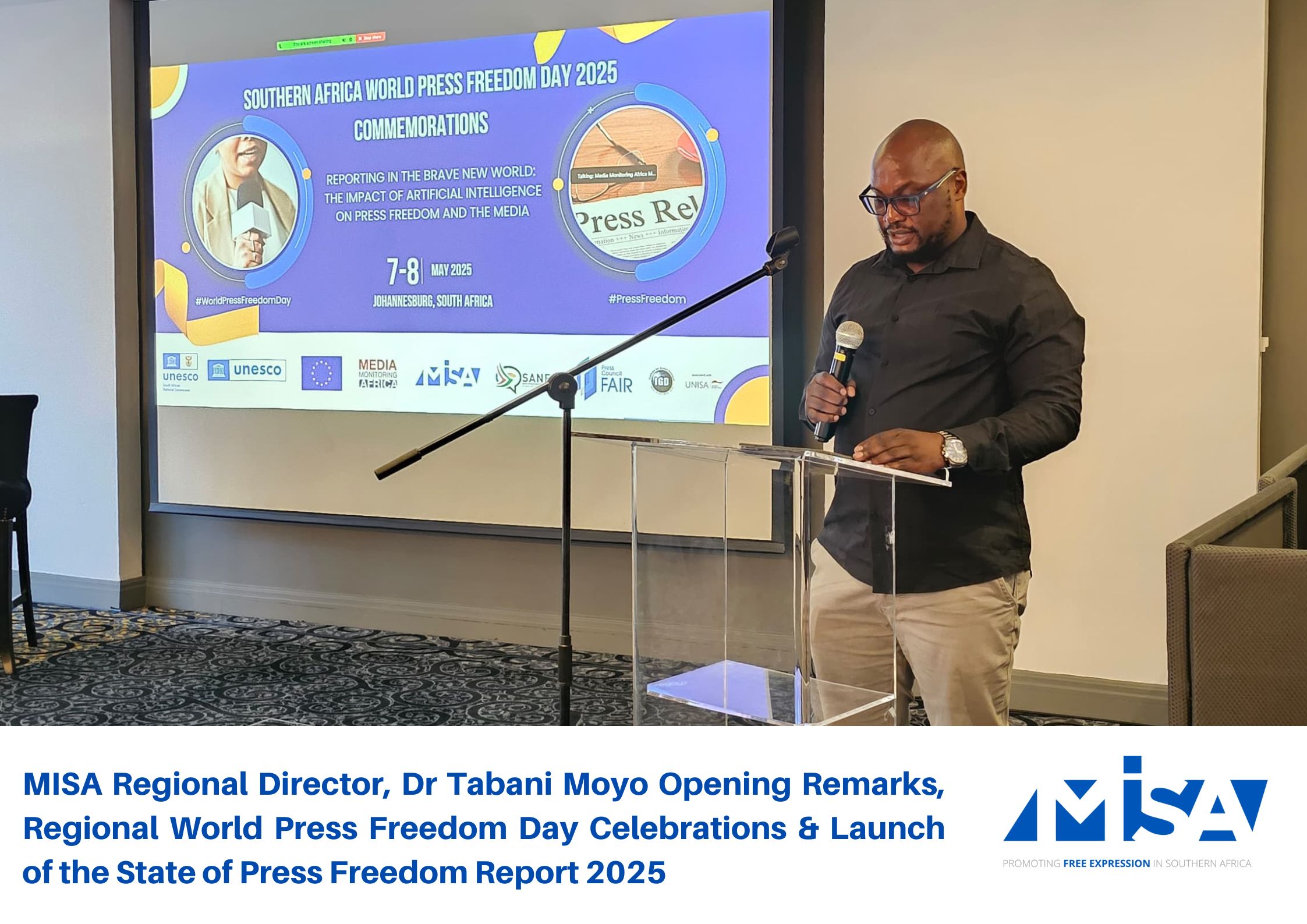16 May 2018
Justice Priscilla Chigumba
Chairperson
Zimbabwe Electoral Commission
1 Nelson Mandela Avenue
Harare
Dear Madam,
RE: POLITICAL PARTIES ACCESS TO ZIMBABWE BROADCASTING CORPORATION
MISA Zimbabwe writes this letter to highlight the unequal coverage of local political parties by national television and radio stations operated and controlled by the Zimbabwe Broadcasting Corporation (ZBC).
This is in direct contravention with the spirit and letter of Section 61 (4) of the 2013 Constitution which implores state-controlled media to “afford fair opportunity for the presentation of divergent views and dissenting opinions”.
Monitoring of the ZBC’s coverage of the forthcoming 2018 harmonised elections, will show that Zanu PF receives far greater coverage than the other parties collectively referred to as opposition political parties. This point is illustrated for example, by reviewing the Lunchtime News and the 8 p.m. edition of News Hour.
Furthermore, opposition political parties are more likely to be portrayed in a negative way compared to the coverage Zanu PF receives. This pattern is prevalent in state-owned print media as well.
However, for the sake of clarity, this letter will refer to ZBC television and radio as these are major entities of the state-controlled media.
The state-controlled media has a constitutional duty as a platform for equal presentation and sharing of divergent views which is of significance during electoral periods. This is asserted by Section 160G of the Electoral Act [Chapter 2:13].
This section states that public broadcasters shall afford all political parties and independent candidates contesting an election such free access to their broadcasting services as may be prescribed in Regulations made under the Electoral Act.
MISA Zimbabwe hereby appeals to the Zimbabwe Electoral Commission, to ensure that political actors, broadcasters, print publishers and journalists observe the requisite Electoral Act’s provisions which relate to the media. While in terms of Section 160 (k) of the Electoral Act, the role of ZEC in monitoring the media is limited to the electoral period, we wish to point out that:
- All major political parties are already in election mode as indicated by the widespread display of posters and bill boards.
- Launch of political parties manifestos for the 2018 elections.
- ZEC’s intensified stakeholders’ meetings.
In light of the above developments, and in terms of the time-neutral obligations of ZEC, under the constitution (see section 233 of the Constitution of Zimbabwe), we urge your Commission to ensure fair access and coverage of political parties by the public broadcaster (ZBC/TV and Radio stations), and the state-controlled print media.
The ZBC’s continued failure to give balanced coverage to opposition political parties is a violation of the public’s right to access to information which is guaranteed in Section 62 of the Constitution. ZBC is a national broadcaster which is partly funded by taxpayer’s funds. It is only fair for those public funds to be used to give coverage which is representative of Zimbabwe’s diverse political landscape.
In addition to these statutory obligations, we also kindly refer you to recommendations by the African Union Electoral Observer Mission after the 2013 general elections. The African Union’s observer mission report outlined that access to Zimbabwe’s state media was not equal and that reporting against opposition political parties cast those parties in a bad light. Five years on, these recommendations for media reforms have not been implemented.
There are also media related provisions of the African Charter on Democracy, Elections and Governance which Zimbabwe recently signed. Although this Charter is not yet binding on Zimbabwe, its principles are persuasive and can inform Zimbabwe’s practice and custom in reference to media and elections.
MISA Zimbabwe respectfully submits that these are urgent concerns which should be addressed as soon as possible. The extent to which media freedoms are enjoyed serve as a barometer of the general level of democracy which exists in any given country.
It is therefore, vital for ZEC to carry out its statutory duty to ensure that ZBC offers equal access to political parties including balanced coverage on topics related to the imminent national elections.
MISA Zimbabwe appreciates your co-operation in this matter of national importance.
Yours Sincerely,
Golden Maunganidze (Mr.)
National Chairperson
cc: His Excellency, Paul Kagame
Chairperson
The African Union
cc: His Excellency, Moussa Faki
Chairperson
African Union Commission
cc: Dr Stergomena Lawrence Tax
Executive Secretary
Southern Africa Development Community
cc: The Chairperson
Zimbabwe Broadcasting Corporation
cc: Honourable Advocate Mudenda
Speaker of the House of Assembly
cc: The Ministry of Information, Media and Broadcasting Services









